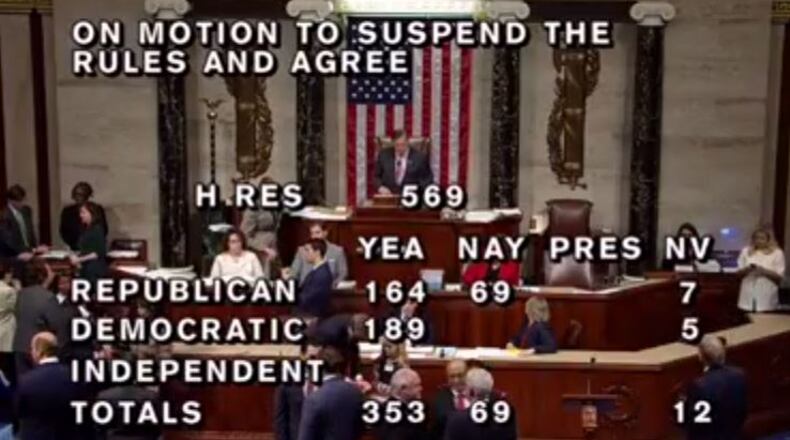One item that drew a sharp rebuke was a plan to funnel $16 billion into the National Flood Insurance Program - which is already saddled with billions in debt.
"I am disappointed that Congress chose to bail out the National Flood Insurance Program (NFIP) on the backs of the American taxpayers," said Rep. Roger Williams (R-TX), one of six Texas Republicans who voted against the hurricane aid package, even though it would deliver needed resources to the Lone Star State.
"I am greatly disappointed that the NFIP bailout would come before the House with NO reforms," Rep. Jeb Hensarling (R-TX) said in his own statement, as he labeled the move "unacceptable."
That $16 billion would insure that claims are paid out for damage from this year's hurricanes. Back in 2013, a similar move to insure the payment of claims from Hurricane Sandy drew the opposition of 67 Republicans. This time it was 69 GOP lawmakers voting against a hurricane aid plan.
The House had included a series of flood insurance reforms in an earlier bill that provided extra tax relief to hurricane victims - but those provisions were stripped out by the Senate.
While flood insurance provisions got the back of the hand from some Republicans, others were frustrated by a lack of budget cuts to offset billions in new disaster relief spending, as the relief tab is only expected to grow - and grow - in coming months.
"I believe Congress can help those affected by natural disasters in a fiscally responsible manner," said Rep. Jim Banks (R-IN).
"Unfortunately, this legislation contains no cuts to offset the new spending on disaster relief," he added in a statement.
The hurricane relief bill now goes to the U.S. Senate, where it could get even larger, as lawmakers from Texas have asked for almost $19 billion in aid just for that state, and lawmakers from Florida have requested $27 billion.
About the Author

